Business
Rejuvenating waste plastic bottles, a universal treasure

by Michael F. Perera
Valuable resources are extracted every day to develop convenient products such as bottles, containers and more. As the extraction of virgin resources rapidly depletes the availability of such, it is high time a sustainable alternative is fetched, to ensure longevity and liveability for future generations.
With the prices for virgin material on the rise, the alternative, which is waste that can be recycled, is staring at us from the roadsides, canals and landfills. If we collect and recycle the waste plastic bottles around our island, the need to import approximately 1000-1300 tonnes of polyethylene terephthalate (PET) every month would significantly reduce, and help revive the environment and economy as well.
Sixty percent of the monthly PET plastic in Sri Lanka is circulated within the Western Province. Unless measures are taken to collect and dispose of waste plastic effectively, the requirement to import plastic will continue to rise, and the potential for a resilient circular economy and improved livelihoods in the recycling sector, will eventually disappear.
Bottle-to-Bottle: a better solution?
One of the easiest solutions is to bring plastic back into the system and recycle it to produce a bottle again. But, that’s hardly a reality. Why? Sri Lanka doesn’t legally allow recycled content in food-grade manufacturing.
According to the Extraordinary Gazette Notification No. 1160/30 of June 29, 2010 “any food in any package, appliance, container or vessel that has been made from recycled plastic” is prohibited. Thus, there is a fear around using recycled plastic in food-grade packaging in terms of quality, and impact on the health of the end consumer.
However, around the world, countries are embracing this concept, committing to world-class standards and implementing the bottle-to-bottle concept to efficiently curb plastic waste pollution, while also giving back to their economy and local communities. Developed and developing economies such as USA, Canada, Europe, Brazil, Bangladesh and Nigeria allows recycled PET in food-grade packaging, which scales down on the use of virgin resin in manufacturing.
For example, the level of PET bottle recycling in Japan is one of the highest in the world, and this was made possible by the Containers and Packaging Recycling Act (1995) which was implemented to promote the segregated collection and recycling of containers and packaging waste. The Government of Japan designates three types of recycling processes; Material, Chemical and Thermal recycling. PET plastics fall under the ‘Material’ category, where PET bottles are made into new PET products.
In Indonesia, Coca-Cola plans to set up a new recycling facility, which will help eliminate the use of virgin plastic. The facility will house a bottle-to-bottle grade PET recycling facility where the use of recycled plastic could reduce the amount of new plastic resin the company uses by an estimated 25,000 tonnes each year. Through this venture, Coca-Cola hopes to play a critical role in supporting Indonesia’s plastic waste management issue, while creating an impact on the country’s circular economy as well.
Moreover, in evident efforts to save foreign exchange and successfully battle against the war of pollution, the bottle-to-bottle concept is approved in many countries. The case in Sri Lanka should be no different. As this concept is also approved by The United States Food and Drug Administration (FDA), Lankan authorities should follow suit and save valuable foreign exchange by converting waste PET back to a bottle. Currently, Sri Lanka spends up to USD 1,550 per ton, per month in foreign reserves for the importation of PET plastic, where approximately 1000-1300 tons of PET is imported per month.
Additionally, recycling PET bottles to their original form can be done more than 7-8 times, where the process is much more affordable and less harmful to the environment, as PET plastics produce three times less CO2 in production when compared to an alternative material such as glass.
Using modern and advanced machinery in the recycling process, the intrinsic viscosity (IV) level, which is the strength of a bottle, will not only be kept stable, but increase as well.
So if the underlying benefits are clear and extremely advantageous to all Sri Lankans, why hasn’t this concept been implemented?
Waste management: a need for stronger reform
In a holistic point of view, one of the biggest issues in Sri Lanka’s waste management system is the poor implementation of proper waste collection. From rural households, to the urban West, to the authoritative bodies in the country, a responsibility to segregate and dispose of plastic waste appropriately must be indoctrinated.
Primarily, every household should ideally have four separate designated bins to collect organic waste, paper waste, glass and metal waste and plastic waste. This way, collectors can collect the less contaminated plastics and give it to the recyclers.
In Japan, households are encouraged to sort their waste at home as they are provided with specific containers for PET bottles, PS foam containers, and PP bottle caps separately, instead of mixing them with other plastics. They are further encouraged to utilise segregated disposal methods such as PET bottle shredders provided at supermarkets for consumers to dispose of their used PET bottles, after which they can collect store credit or shopping tokens. Japan’s impressively high plastic recycling rate is owed to its local Governments’ sorting rules, which are some of the strictest in the world.
In Sri Lanka, most people look up to the Government to address this issue, but truth be told, the infrastructure and practices in place are outdated and inefficient. In essence, the local Government’s policy decisions in the waste management and recycling arenas have been extreme, often overlooking the long-term economic and environmental benefits that could be availed, in favour of an ‘easy-fix’ ban.
Local authorities are also a key stakeholder in ensuring a proper and efficient waste segregation and management system. Their support in raising awareness and imposing strict rules and penalties to maintain proper waste segregation will not only empower the local recycling industry, but also reflect well as people now want to recycle, but the issue prevails in collection efforts.
Therefore, it is vital that the local communities and the Government take a strong stance in handling the country’s waste management issue, as the long term economic and environmental benefits definitively outweigh the complications and issues created by either neglecting the concerns in the local waste management and recycling sector, or simply chucking the problem under the rug with another ‘ban’. It is critical that waste management efforts are strengthened so that waste plastic makes its way into the recycling economy. An easy solution to the plastic waste issue is also to have plastic go back into the system. However, this is currently prohibited in the country as it has been gazetted as mentioned above. Allowing recycled material to be used in food-grade packaging will further increase the demand for plastic recycling, a critical priority in our island nation.
(The writer is the chairman at CMC Engineering Export GmbH, a member of the Melchers Group, engaged in importing an extensive range of technical products from quality suppliers from Europe and Asia, and is also a Past President of the Institute of Packaging)
Business
IMF staff team concludes visit to Sri Lanka
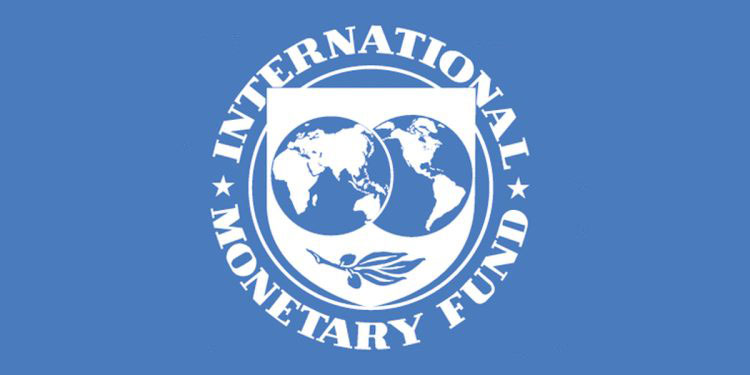
An International Monetary Fund (IMF) team led by Evan Papageorgiou visited Colombo from April 3 to 11, 2025. After constructive discussions in Colombo, Mr. Papageorgiou issued the following statement:
“Sri Lanka’s ambitious reform agenda supported by the IMF Extended Fund Facility (EFF) continues to deliver commendable outcomes. The post-crisis growth rebound of 5 percent in 2024 is impressive. Inflation declined considerably in recent quarters and has fallen to ‑2.6 percent at end-March 2025. Gross official reserves increased to US$6.5 billion at end-March 2025 with sizeable foreign exchange purchases by the central bank. Substantial fiscal reforms have strengthened public finances.
“The recent external shock and evolving developments are creating uncertainty for the Sri Lankan economy, which is still recovering from its own economic crisis. More time is needed to assess the impact of the global shock and how its implications for Sri Lanka can be addressed within the contours of its IMF-supported program.
“The government’s sustained commitment to program objectives is ensuring policy continuity and program implementation remains strong. Going forward, sustaining the reform momentum is critical to safeguard the hard-won gains of the program and put the economy on a path toward lasting macroeconomic stability and higher inclusive growth.
“Against increased global uncertainty, sustained revenue mobilization efforts and prudent budget execution in line with Budget 2025 are critical to preserve the limited fiscal space. Boosting tax compliance, including by reinstating an efficient and timely VAT refund mechanism, will help contribute to revenue gains without resorting to additional tax policy measures. Avoiding new tax exemptions will help reduce fiscal revenue leakages, corruption risks and build much needed fiscal buffers, including for social spending to support Sri Lanka’s most vulnerable. Restoring cost recovery in electricity pricing will help minimize fiscal risks arising from the electricity state-owned enterprise.
“The government has an important responsibility to protect the poor and vulnerable at this uncertain time. It is important to redouble efforts to improve targeting, adequacy, and coverage of social safety nets. Fiscal support needs to be well-targeted, time-bound, and within the existing budget envelope.
“While inflation remains low, continued monitoring is warranted to ensure sustained price stability and support macroeconomic stability. Against ongoing global uncertainty, it remains important to continue rebuilding external buffers through reserves accumulation.
“Discussions are ongoing, and the authorities are encouraged to continue to make progress on restoring cost-recovery electricity pricing, strengthening the tax exemptions framework, and other important structural reforms.
“The IMF team held meetings with His Excellency President and Finance Minister Anura Kumara Dissanayake, Honorable Prime Minister Dr. Harini Amarasuriya ; Honorable Labor Minister and Deputy Minister of Economic Development Prof. Anil Jayantha Fernando, Honorable Deputy Minister of Finance and Planning Dr. Harshana Suriyapperuma, Central Bank of Sri Lanka Governor Dr. P. Nandalal Weerasinghe, Secretary to the Treasury Mr. K M Mahinda Siriwardana, Senior Economic Advisor to the President Duminda Hulangamuwa, and other senior government and CBSL officials. The team also met with parliamentarians, representatives from the private sector, civil society organizations, and development partners.
“We would like to thank the authorities for the excellent collaboration during the mission. Discussions are continuing with the goal of reaching staff-level agreement in the near term to pave the way for the timely completion of the fourth review. We reaffirm our commitment to support Sri Lanka at this uncertain time.”
Business
ComBank unveils new Corporate Branch at Head Office
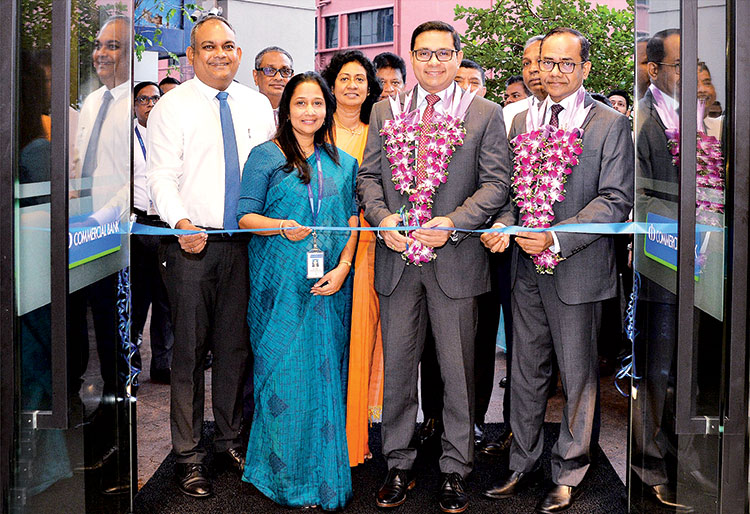
The Commercial Bank of Ceylon has transformed its iconic ‘Foreign Branch’ into the ‘Corporate Branch,’ reaffirming its commitment to delivering dedicated, comprehensive financial solutions to corporate and trade customers.
The Bank said this transformation represents a new milestone in its illustrious journey, and resonates with the rich commercial heritage of Colombo, a city that has long served as a vital trading hub in the region.
Strategically located at the Bank’s Head Office at Commercial House, 21, Sir Razeek Fareed Mawatha (Bristol Street), Colombo 1, this rebranded Corporate Branch stands as a first of its kind in Sri Lanka —a premier financial hub tailored exclusively to the needs of corporate customers, the Bank said. The transformation aligns with the Bank’s vision of providing unparalleled service excellence, bespoke financial solutions, and fostering long-term business partnerships.
Commenting on this strategic initiative, Commercial Bank’s Managing Director/CEO Sanath Manatunge stated: “It is our aspiration that just as the historic Delft Gateway, at which our Head Office is located, once opened the path to the Dutch Fort, our Corporate Branch will chart a new era of enduring and prosperous business collaborations, that will extend beyond Sri Lanka’s shores.”
Business
Fits Retail and Abans PLC Unveil Exclusive DeLonghi Premium Coffee Experience
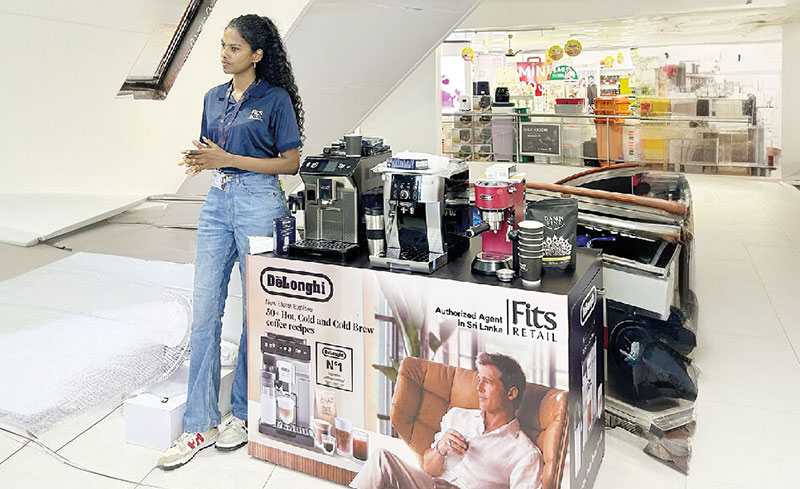
Fits Retail has partnered with retail giant Abans PLC to showcase the iconic DeLonghi coffee machines at two of Colombo’s most prestigious locations: Abans Elite Colombo 3 and Abans Havelock City Mall showrooms.
At these dedicated demonstration zones, visitors can discover the unparalleled precision engineering and user-friendly technology that have made DeLonghi machines the preferred choice for discerning coffee lovers in more than 46 countries worldwide. Renowned for consistently delivering café-quality espresso, cappuccino, and even specialty cold brews, DeLonghi machines exemplify Italian innovation at its finest.
Yasas Kodituwakku, CEO of Fits Retail, expressed excitement about the collaboration: “This partnership represents our unwavering commitment to bringing global coffee excellence to Sri Lankan connoisseurs. With Abans PLC, we’re creating more than just demonstration spaces; we’re curating premium destinations for an authentic coffee experience.”
“As pioneers of premium lifestyle experiences in Sri Lanka, our collaboration with Fits Retail aligns seamlessly with our vision of elevating everyday moments into exceptional experiences,” said Tanaz Pestonjee, Director Business Development at Abans PLC.
-

 News5 days ago
News5 days agoSuspect injured in police shooting hospitalised
-

 Features6 days ago
Features6 days agoRobbers and Wreckers
-

 Business6 days ago
Business6 days agoBhathiya Bulumulla – The Man I Knew
-

 Business5 days ago
Business5 days agoSanjiv Hulugalle appointed CEO and General Manager of Cinnamon Life at City of Dreams Sri Lanka
-

 Business7 days ago
Business7 days agoNational Anti-Corruption Action Plan launched with focus on economic recovery
-

 Features4 days ago
Features4 days agoLiberation Day tariffs chaos could cause permanent damage to US economy, amid global tensions
-
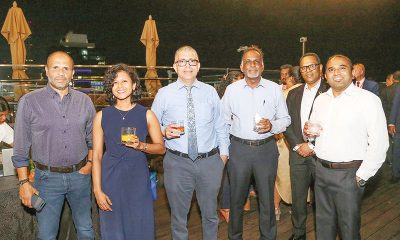
 Business4 days ago
Business4 days agoMembers’ Night of the Sri Lanka – Russia Business Council of The Ceylon Chamber of Commerce
-
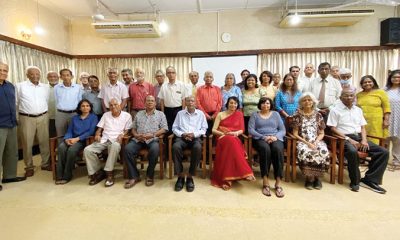
 Features4 days ago
Features4 days agoMinds and Memories picturing 65 years of Sri Lankan Politics and Society











